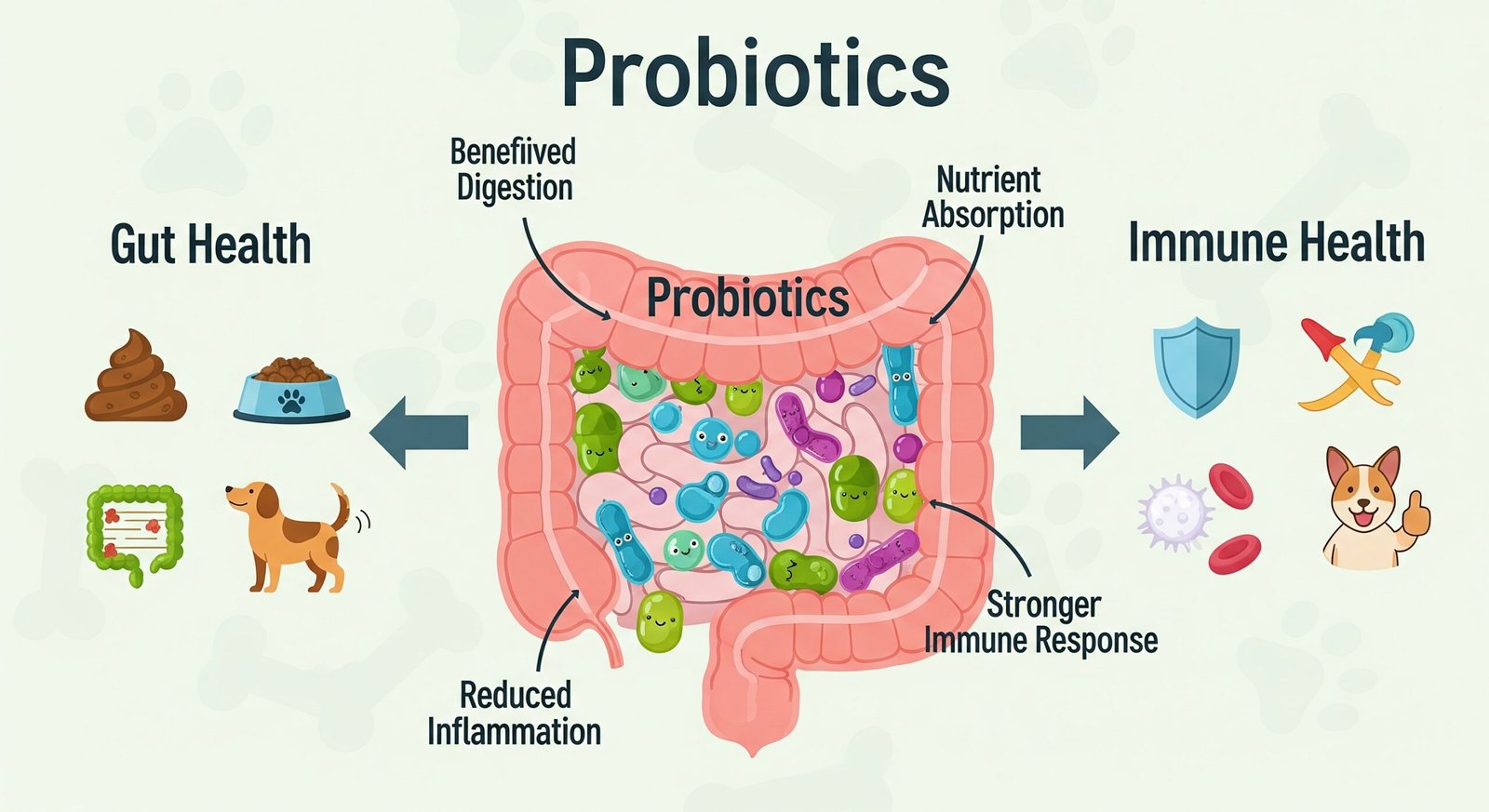Key Takeaway: Controlled trials and systematic reviews show that oral glucosamine-chondroitin combinations provide at best modest, inconsistent benefits in canine osteoarthritis, comparable to placebo in the largest, highest-quality study. MSM’s efficacy in dogs remains unsupported by direct clinical trials, with available data deriving from rodent models or combination products, providing insufficient evidence to recommend it as a standalone joint therapy.
1. Background on Canine Osteoarthritis and Nutraceuticals
Osteoarthritis (OA) affects up to 20% of dogs over one year old, leading to cartilage degradation, pain, and reduced mobility. Alongside weight management and non-steroidal anti-inflammatories (NSAIDs), nutraceuticals—dietary supplements intended to support joint health—are widely marketed for dogs.
2. Glucosamine and Chondroitin
2.1 Mechanism of Action
- Glucosamine serves as a precursor for glycosaminoglycans, key components of cartilage matrix.
- Chondroitin sulfate is a proteoglycan constituent thought to inhibit cartilage-degrading enzymes.
2.2 Clinical Trial Evidence
Three randomized trials of glucosamine-chondroitin (Glu/CS) in dogs with naturally occurring OA yielded mixed outcomes:
| Study (Design) | Intervention (Duration) | Control | Main Findings |
|---|---|---|---|
| McCarthy et al., 2007 (randomized, double-blind, positive-controlled; n = 35; 70 d) | Glucosamine HCl + chondroitin sulfate | Carprofen | Dogs on Glu/CS showed significant improvements in veterinarian-assessed pain, weight bearing, and condition by day 70; onset slower vs. carprofen but clinically meaningful. |
| Moreau et al., 2003 (randomized, double-blind, placebo-controlled; n = 71; 60 d) | Glu/CS combination | Placebo | Objective gait parameters improved significantly with NSAIDs (carprofen, meloxicam) but not with Glu/CS nor placebo. Owner assessments likewise favored NSAIDs. |
| Guilherme et al., 2010 (randomized, positive-controlled; n = 35; 70 d) | Glu/CS + additional co-factors | Carprofen | Carprofen improved lameness, mobility, pain, and weight bearing by day 42; Glu/CS group improved only 3 of 5 measures at final assessment (day 70), indicating weaker efficacy. |
2.3 Systematic Review and Meta-Analysis
A 2022 systematic review and meta-analysis of 72 canine OA trials concluded:
- Chondroitin-glucosamine nutraceuticals exhibited no clinically relevant analgesic effect in dogs and cats.
- Omega-3 supplements demonstrated consistent analgesia, whereas glucosamine-chondroitin combinations showed a pronounced non-effect.
3. Methylsulfonylmethane (MSM)
3.1 Proposed Mechanisms
- Anti-inflammatory: Inhibits pro-inflammatory cytokines, potentially reducing joint inflammation.
- Analgesic: Mild pain-relieving effects reported in human studies.
3.2 Evidence in Veterinary Models
- A rodent OA model demonstrated dose-dependent cartilage protection in STR/Ort mice.
- No published, placebo-controlled clinical trials have isolated MSM’s effects in dogs.
3.3 Combination Trials
A multi-group RCT comparing PCSO-524 (marine fatty acids), glucosamine/chondroitin with MSM, and carprofen found no significant gait improvement with glucosamine/chondroitin/MSM vs. placebo; only marine fatty acids and NSAIDs improved peak vertical force.
4. Safety and Adverse Effects
- Glucosamine and chondroitin are generally well tolerated; rare reports of vomiting or diarrhea occur in 1–2% of dogs.
- High doses of MSM in rodents induced organ atrophy; canine safety at high doses remains undefined.
5. Practical Recommendations
- First-line therapy: NSAIDs and weight management remain the gold standard for canine OA.
- Omega-3 fatty acids: Offer evidence-based benefits in multimodal management.
- Glucosamine-chondroitin: May be considered adjunctively, but owners should have realistic expectations—benefits are modest and inconsistent.
- MSM: Current evidence is insufficient to support routine use; further canine-specific clinical trials are needed.
Conclusion
While glucosamine and chondroitin demonstrate some promise in controlled settings, the largest, most rigorous trials reveal minimal advantage over placebo. MSM lacks direct clinical validation in dogs. Prioritizing therapies with robust evidence—NSAIDs and omega-3 fatty acids—will optimize canine joint health management.

